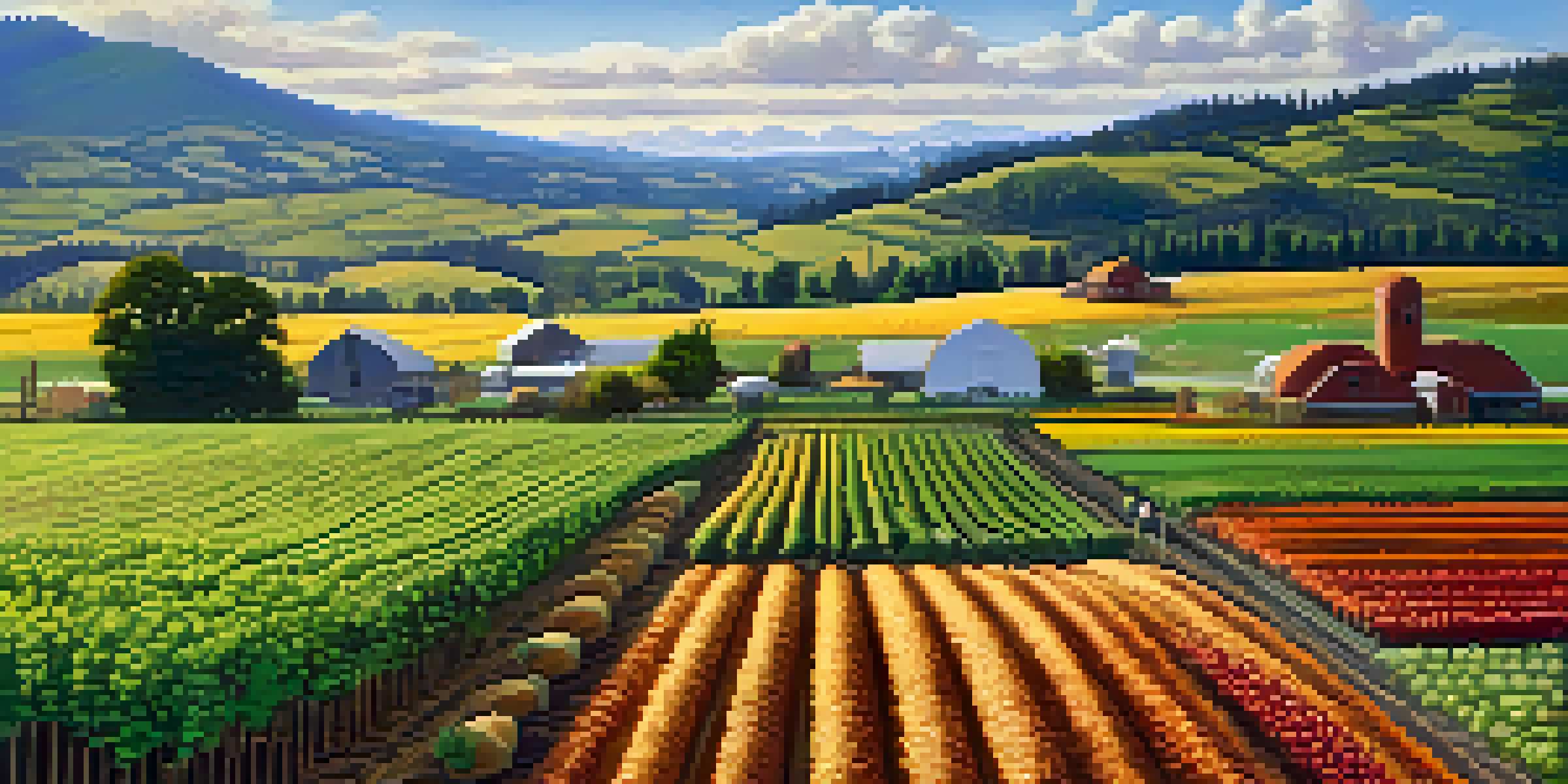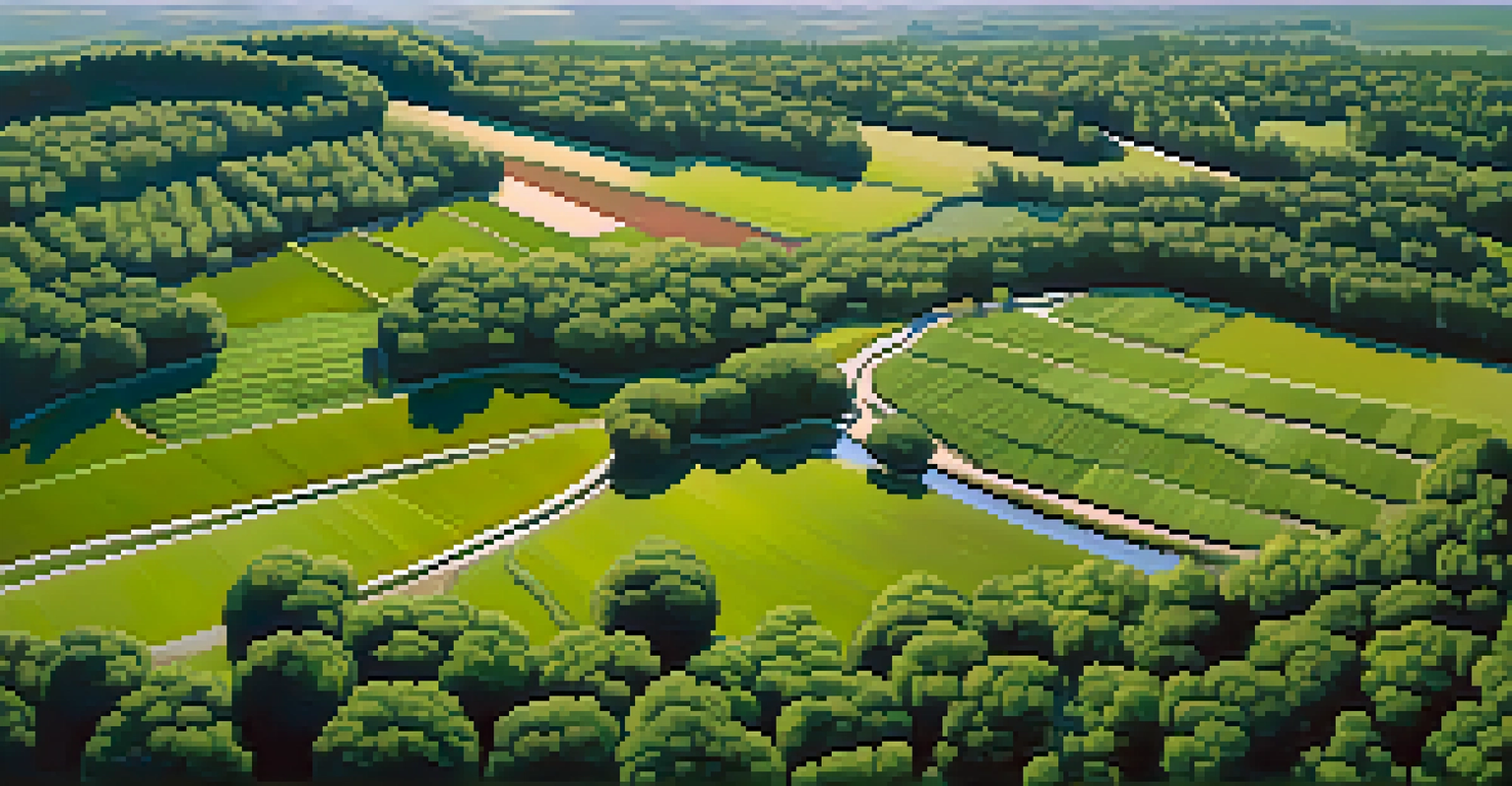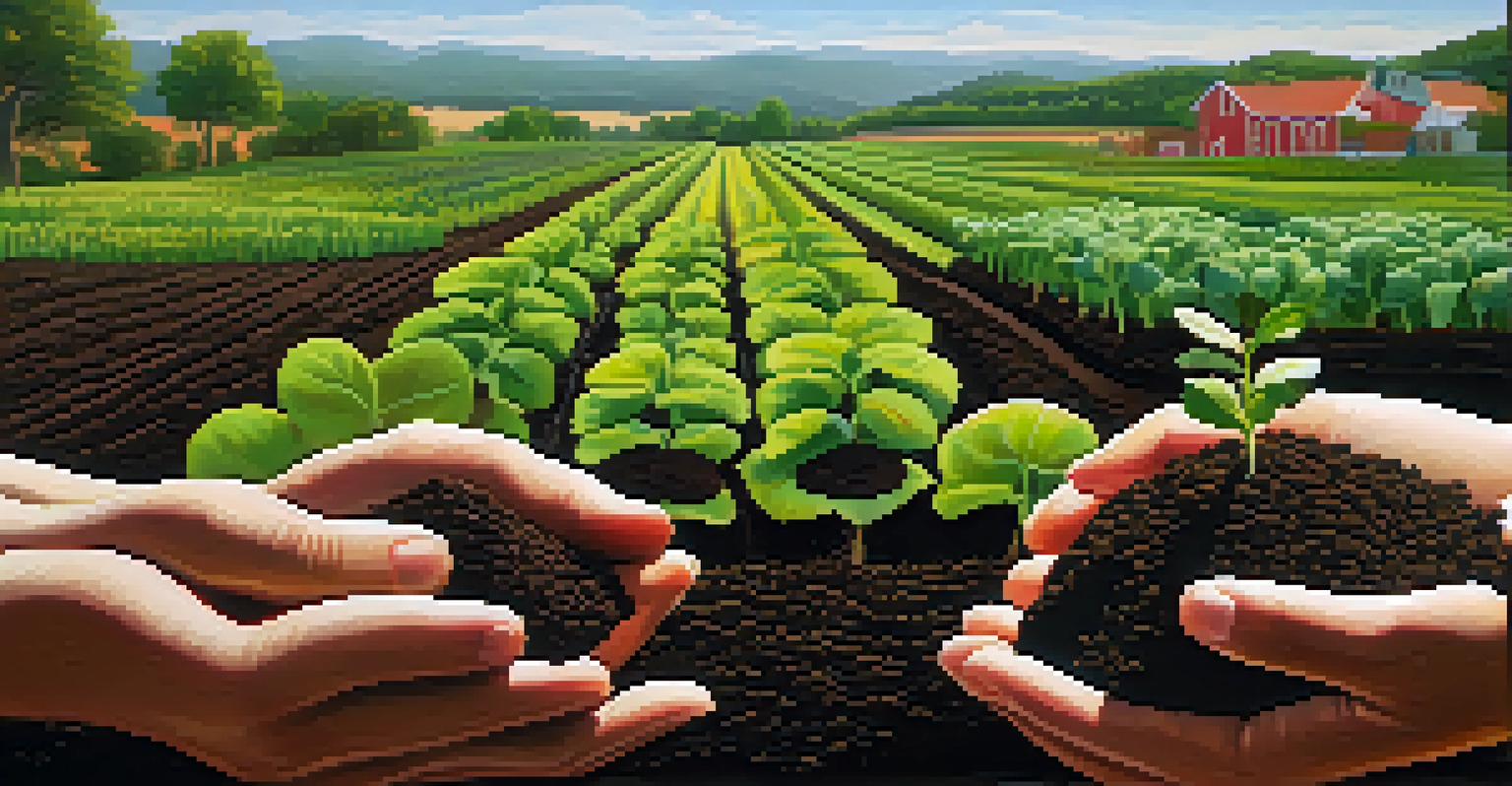Sustainable Farming Practices in Washington State

Understanding Sustainable Farming and Its Benefits
Sustainable farming is about growing food in ways that are environmentally friendly, economically viable, and socially responsible. It focuses on practices that preserve resources for future generations, ensuring that our farming methods do not harm the land or the communities around them.
Sustainable agriculture is a way of farming that meets current food needs without compromising the ability of future generations to meet their own needs.
In Washington State, where agriculture plays a crucial role in the economy, sustainable practices can significantly reduce environmental impacts. For example, by using crop rotation and cover crops, farmers can enhance soil health, which leads to better yields and reduced need for chemical fertilizers.
Moreover, sustainable farming not only benefits the environment but also supports local economies. When consumers choose to buy from local farms that practice sustainable methods, they contribute to a healthier ecosystem and help maintain the community's agricultural viability.
Crop Rotation: A Time-Tested Sustainable Practice
Crop rotation involves changing the types of crops grown in a particular area over time. This practice helps prevent soil depletion and reduces pest and disease cycles, which can be particularly beneficial in Washington's diverse climate.

For instance, a farmer might alternate between planting legumes, which enrich the soil with nitrogen, and grains, which absorb different nutrients. This not only maintains soil fertility but also increases biodiversity on the farm.
Sustainable Farming Preserves Resources
Sustainable farming focuses on environmentally friendly practices that ensure the preservation of resources for future generations.
Farmers in Washington have seen success with crop rotation, as it leads to healthier crops and reduced reliance on chemical pesticides. By rotating crops, they create a more resilient farming system that can withstand the challenges posed by changing weather patterns.
Agroforestry: Combining Trees and Crops for Sustainability
Agroforestry is a practice that integrates trees and shrubs into crop and livestock systems. This approach not only enhances biodiversity but also improves soil health and reduces erosion, which is particularly important in Washington's hilly regions.
The greatest threat to our planet is the belief that someone else will save it.
In Washington State, farmers are increasingly adopting agroforestry techniques to create shade for crops and livestock, which can improve water conservation and reduce heat stress. For example, planting trees alongside berry crops can provide much-needed protection from harsh sun.
The benefits of agroforestry extend beyond the farm; it helps sequester carbon, mitigate climate change, and provide habitats for wildlife. This interconnected approach is proving to be a win-win for farmers and the environment alike.
Water Conservation Techniques in Farming
Water is a precious resource, and sustainable farming practices in Washington emphasize its conservation. Techniques such as drip irrigation and rainwater harvesting are becoming more common among local farmers.
Drip irrigation, which delivers water directly to the roots of plants, reduces water wastage and encourages deep root growth. This method is especially useful in Washington’s drier regions, where efficient water use is critical.
Crop Rotation Enhances Soil Health
Implementing crop rotation improves soil fertility and biodiversity, leading to healthier crops and reduced reliance on chemical inputs.
By adopting these water conservation methods, farmers not only preserve this vital resource but also improve crop resilience during dry spells. This proactive approach is essential as climate change continues to impact weather patterns across the state.
Organic Farming: A Growing Trend in Washington
Organic farming avoids synthetic fertilizers and pesticides, focusing instead on natural methods to maintain soil health and manage pests. In Washington, the organic farming movement is gaining momentum, with many consumers actively seeking out organic products.
Farmers who adopt organic practices often find that they can charge a premium for their products, which can lead to increased profits. Moreover, organic farming systems promote biodiversity and utilize crop rotations and organic composts to enrich the soil.
The rise of organic farming in Washington is not just a trend; it's a response to consumer demand for healthier, chemical-free food. As more farmers transition to organic methods, the state's agricultural landscape will continue to evolve.
Integrating Livestock into Sustainable Farming Systems
Integrating livestock into farming systems can enhance soil fertility and promote sustainable practices. In Washington, many farmers are practicing rotational grazing, where livestock are moved between pastures to prevent overgrazing and promote grass recovery.
This method not only improves land use efficiency but also helps to cycle nutrients back into the soil, benefiting subsequent crops. For example, manure from grazing animals acts as a natural fertilizer, enriching the soil without the need for synthetic inputs.
Community Supported Agriculture Benefits
Community Supported Agriculture (CSA) connects consumers directly with local farmers, promoting sustainable practices and supporting the local economy.
Furthermore, livestock can help control weeds and pests, reducing the need for chemical interventions. By harmoniously integrating livestock into their operations, farmers in Washington are creating more sustainable and resilient agricultural systems.
Community Supported Agriculture: Strengthening Local Ties
Community Supported Agriculture (CSA) is a model where consumers buy shares of a farm's harvest in advance, directly supporting local farmers. This practice fosters a stronger connection between producers and consumers in Washington State.
By participating in a CSA, consumers receive fresh, seasonal produce while supporting sustainable farming practices. This not only helps farmers secure funding for their operations but also encourages a more transparent food system.

Moreover, CSAs often promote the use of sustainable practices, as consumers are increasingly interested in how their food is grown. This direct relationship nurtures a sense of community and encourages more people to support local agriculture.
The Future of Sustainable Farming in Washington State
As the effects of climate change become more pronounced, the future of sustainable farming in Washington State looks promising yet challenging. Farmers are increasingly adopting innovative practices to adapt to changing weather patterns and market demands.
New technologies, such as precision agriculture and data analytics, are helping farmers make informed decisions about their practices, optimizing resource use and improving crop yields. For example, using satellite imagery can help farmers monitor crop health and water needs more effectively.
Ultimately, the commitment to sustainable farming practices will play a crucial role in ensuring food security and environmental health in Washington. By fostering collaboration among farmers, consumers, and policymakers, the state can pave the way for a more sustainable agricultural future.